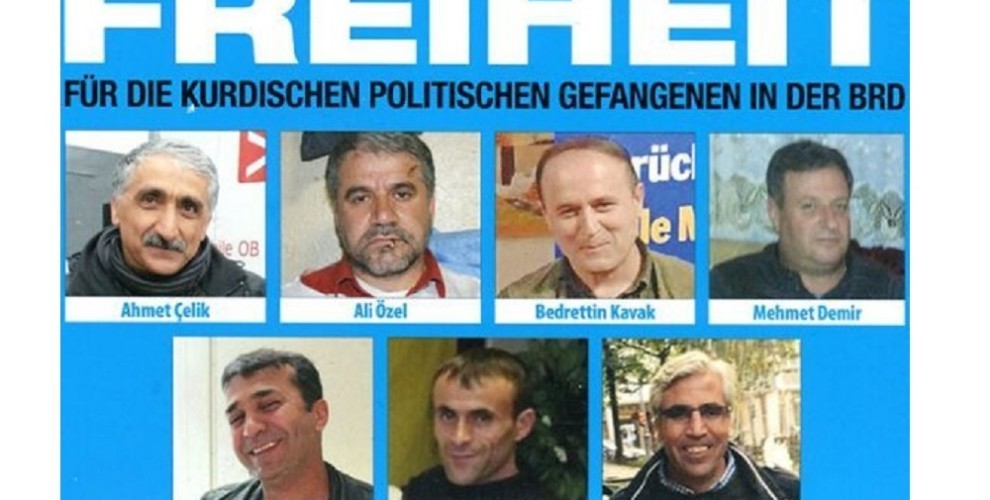Three Kurdish politicians released from prison in Germany
Kurdish politicians Bedrettin Kavak, Ali Özel and Ali Hıdır Doğan have been released from German jails after serving their sentences.
Kurdish politicians Bedrettin Kavak, Ali Özel and Ali Hıdır Doğan have been released from German jails after serving their sentences.

The Azadi Association, which fights for the rights of Kurdish prisoners in Germany, has provided new information about three of the Kurdish politicians tried in Germany on the “anti-terror” act 129b.
The association reported in its monthly bulletin that Bedrettin Kavak, Ali Özel and Ali Hıdır Doğan have been released from prison in the month of August after the ending of their prison sentences.
Kurdish activist Ali Özel was taken into custody in February 2015 and was sentenced, in October 2016, to 3 years and 6 months in prison by the High State Court of Stuttgart.
Kurdish politician Bedrettin Kavak was jailed in Germany in August 2015. Before coming to Germany, he had served a total of 24 years in Turkish prisons for political reasons. In August 2016, he was sentenced to three years by the High State Court of Hamburg.
Ali Hıdır Doğan, who was released from prison in Bremen last week, had been arrested in April 2016. In March 2017, he was sentenced to 2 years and 4 months by the Berlin State Court.
During the recent years, German courts have sentenced more than 10 Kurdish politicians and activists to 2 to 3,5-year prison sentences despite the fact that they committed no offense in Germany and were “established to be working for Kurdish freedom struggle”.
In their statements of defense at courts, the Kurdish politicians on trial pointed out the legitimacy of the Kurdish people’s freedom struggle.
129b is among the most controversial anti-terror acts put into force by Germany after the 11 September attacks in 2003 to "smooth the international fight against terror". The act enables the trial of persons and groups involved in any kind of political act of violence outside Germany.
129b is grounded on the European Union's list of terrorist organisations in which the PKK was included on 2 May 2002.
On 26 November 1993, German Interior Minister Manfred Kanther of the Helmut Kohl government announced the ban on the PKK with a special bulletin prepared by the federal prosecution office. Dozens of Kurdish associations and establishments were closed and a systematic criminalization policy against Kurds was put into effect after the introduction of the ban on the party.
As Kurds continue fighting against ISIS barbarity on behalf of humanity, the German state has also become a part of the Turkish state's war against Kurds.
While it remains understandable that Turkey attacks Kurds to protect the ISIS, it raises question marks and suspicions why the German state is supporting Turkey which supports ISIS. Kurdish institutions evaluate this policy of the German state as an indirect support and morale to the ISIS.
Lawyers for Kurdish politicians jailed in Germany applied o the Federal Constitutional Court in 2010 FOR the revocation of the implementation of Article 129b for Kurdish prisoners. The Court is, however, yet to answer the application.